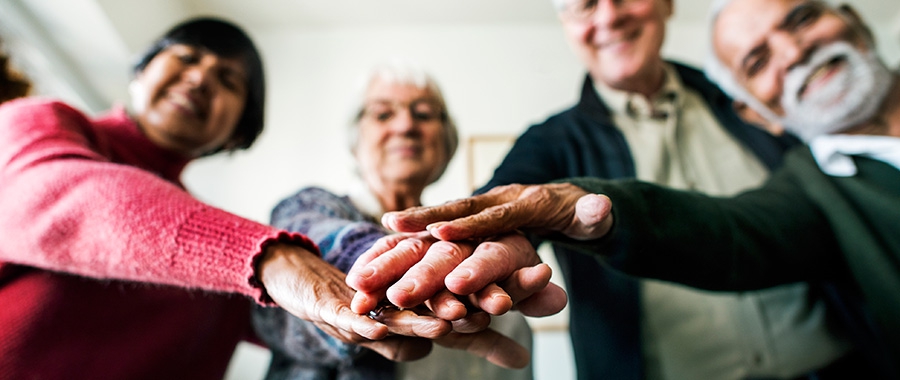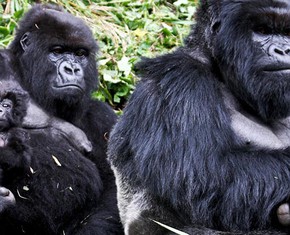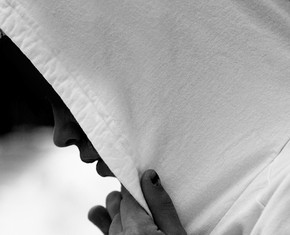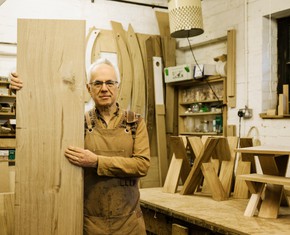The views expressed in our content reflect individual perspectives and do not represent the authoritative views of the Baha'i Faith.
For twelve years now, my Baha’i community in Austin, Texas has held a racial amity symposium—and we’ve learned some powerful lessons.
When these words from Baha’u’llah were read by a Huston-Tillotson student as the introduction to the joint worship service kicking off the day’s events at the most recent symposium, I was pleased and grateful. If we followed these thoughts, I said to myself, we were on the correct path with our work:
O Children of Men! Know ye not why We created you all from the same dust? That no one should exalt himself over the other. Ponder at all times in your hearts how ye were created. Since We have created you all from one same substance it is incumbent on you to be even as one soul, to walk with the same feet, eat with the same mouth and dwell in the same land, that from your inmost being, by your deeds and actions, the signs of oneness and the essence of detachment may be made manifest. Such is My counsel to you, O concourse of light! Heed ye this counsel that ye may obtain the fruit of holiness from the tree of wondrous glory. – Baha’u’llah, The Hidden Words, p. 20.
So, what have we learned?
From Brian Guequierre, attorney, member of the Austin Baha’i governing body and a member of the symposium planning committee from the beginning:
I think it’s worth mentioning the context for the event, how even the heroism of Louis Gregory can only be appreciated through the greater social context of the Jim Crow South and his bi-racial marriage that was illegal here in Texas. It’s also been enlightening to gauge public reception and engagement with the symposium over the last twelve years. I’d say initially there was engagement mostly by the people who were the most directly impacted by racial prejudice, then after Obama was elected there may have even been a little self-congratulatory push back from the general community buying into the notion that we were living in a post-racial America. As the Black Lives Matter movement took hold and increasingly the underlying, unresolved issues on racial injustice and social inequality came more to the surface, there has been, from the broader community, a greater willingness to engage and acknowledge the importance of the race unity work that the symposium engages in.
I would also say that we’ve learned it’s important to create a space to have these conversations because many people need that space for different reasons, and that we’ve learned a lot about engaging allies and institutions to collaborate on the work. Last year’s Symposium fell during an acute period of racial tension in Austin due to the bombings that were being investigated as potential race-based terrorism. This concern was mentioned by more than one participant and they went on to state that the act of participating in something like the symposium while faced with such a climate affords some small measure of agency to the participants, in that they are affirming they stand together for a better belief, a better, united future.
What are some developments that came from the years of the symposium? Brian said:
I think that it’s probably worth mentioning that some of the partnerships we’ve formed have continued to bear fruit, including individuals engaging in broader Baha’i community building activities or even joining the Faith. Genuine friendships have been formed or nurtured, and cross-pollinating like-minded relationships and opportunities continue, including renewed collaboration with the Austin chapter of the NAACP, work on Race Unity Day with a local Unitarian church, with Interfaith Action of Central Texas, the Peace through Pie organization, and the Austin mayor’s task force on race relations. In fact, the mayor was our keynote speaker a couple years ago.
Another important contribution of the symposium: the number of college scholarships that have been handed out over the years. More than 50 individual college students, almost exclusively from Huston-Tillotson, have received financial assistance because of the event. One set of students has received Louis Gregory Memorial scholarships every year, while a separate group has received scholarships from an essay contest sponsored by the symposium. The topic for both sets of scholarships has varied over the years, but has consistently been along the lines of “How can I use my education to further the betterment of our society and what role will I play in contributing to race unity?”
Dr. Michael Hirsch works tirelessly as the Huston-Tillotson University liaison, serving as master of ceremonies and in other vital roles, including discussion panelist. Here is what he said in response to what the symposium has accomplished:
The symposiums have 1) introduced the Baha’i Faith to a community for whom it would otherwise be invisible; 2) has generated significant discussions on the weight of race/ethnic/religious difference in everyday life; 3) the symposiums/discussions are also a source of hope, that differences can be bridged and diminished through time.
















Comments
Sign in or create an account
Continue with Googleor